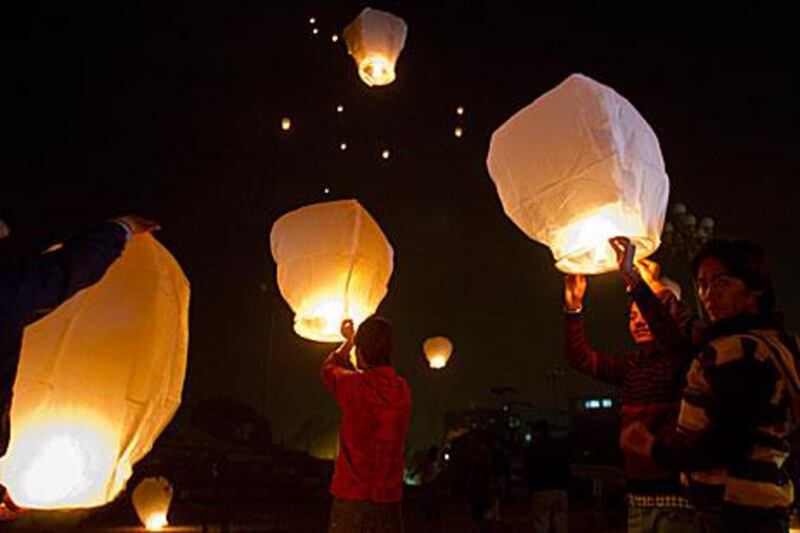ISLAMABAD // Pakistan's embattled president Asif Ali Zardari yesterday warned against any move to overthrow his government, vowing to fight to strengthen democracy in the country amid a rift with the army.
Speaking to thousands of supporters in his hometown to mark the anniversary of the assassination of his wife and former prime minister, Benazir Bhutto, Mr Zardari said he was medically fit to lead the country.
A sudden visit by Mr Zardari to Dubai for medical treatment this month stoked speculation he was fleeing the country and might step down under pressure from the army.
"We will fight in a democratic way." Mr Zardari said in Garhi Khuda Bux town in his first public address since returning from the UAE.
"We will stay and fight but we will fight like Aung San Suu Kyi," he said while referring to Myanmar's pro-democracy leader.
"I am constitutional president and Yusuf Raza Gilani is the constitutional prime minister ... if any evil eye tried to break the federation then I will not let it to do so," Mr Zardari said while standing behind a bulletproof glass near the mausoleum of Bhutto, who was killed in a gun and bomb attack four years ago, in the southern Sindh province.
Underscoring the row, Mr Gilani last Thursday delivered an unusual tirade against the military - the most powerful institution in Pakistan, which has ruled for most of country's 64 years - saying conspiracies were being hatched to topple the government.
The amy chief, General Ashfaq Kayani, on Friday denied he was planning a coup and vowed support for the democratic process.
Despite Gen Kayani's assurances, the pressure on Mr Zardari's government has not eased. The Supreme Court is hearing an opposition petition about whether Mr Zardari played any role in sending memo to a US general seeking help to prevent a possible military coup after US forces killed Osama bin Laden in a Pakistani garrison town in May.
The memo was sent by an American businessman of Pakistan origin allegedly on the instructions of the then Pakistan's ambassador to the United States, Husain Haqqani.
Mr Haqqani is a close aide to Mr Zardari and both have denied the charges, but Mr Haqqani was forced to resign under the pressure from the army, according to the media.
Mr Zardari made no direct reference in his speech to the scandal dubbed as "memogate" by Pakistani media but he criticised the Supreme Court, saying it was taking up politically motivated cases against the government while ignoring a case relating to Bhutto's murder investigation.
On Monday, the government submitted its response in court to the opposition petition, maintaining that the memo was a "non-issue" and posed no threat to national security. That runs counter to military's stance. It has called for a thorough investigation into the memo scandal and said the unsigned memo was meant to demoralise the army after May 2 US raid that killed bin Laden
Pakistan's army was humiliated by the raid near its main academy in the town of Abbottabad, which the US conducted without informing it in advance.
The army also faced criticism at home over not knowing that the world's most wanted man was living in a high-security area unnoticed for about five years.





